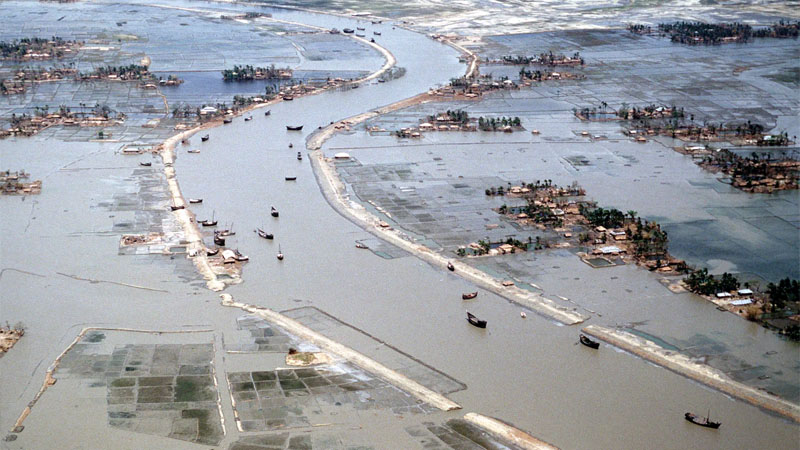Exclusive content

Bangladesh’s aquaculture sector has suffered a loss of USD 140 million over the past decade, primarily attributed to the adverse effects of climate change, according to a recent analysis.
Vulnerability to Extreme Weather Events
The study, published in Climate Risk Management, emphasizes Bangladesh’s high vulnerability to extreme weather events, a trend expected to intensify in the near and distant future.
The analysis identifies flooding as the most financially damaging and frequently occurring hazard for hatcheries, open water fish, and shrimp. Between 2011 and 2020, floods led to an estimated loss of approximately 54,000 tons of aquaculture production, valued at USD 93 million.
Cyclones emerged as the second most damaging factor, resulting in the loss of 12,000 tons of fish products, with a total value of USD 24.8 million.
The Role of Climate Information Services
The study advocates for the adoption of climate information services as a potential solution to reduce climate-related risks in the aquaculture sector. These services offer crucial climate data that can aid fish farmers in making climate-resilient decisions and managing production processes more effectively.
Global South Lagging in Climate Services
Despite the evident benefits, the analysis notes that countries in the global South, including Bangladesh, have been slow in developing climate services for aquaculture. This delay is attributed to a lack of awareness regarding the economic advantages of such services and the predominant focus on similar tools for crops.
Bangladesh’s Significance in Global Aquaculture
More than 91% of global aquaculture production, amounting to 102.9 million tons in 2017, is currently produced in Asia. Bangladesh, ranking fifth globally after China, Indonesia, India, and Vietnam, plays a significant role in this sector.
Crucial Role in Nutrition and Food Security
Fish and fish-based foods contribute to 60 percent of the total daily animal protein intake for Bangladesh’s population, significantly impacting nutrition and food security, particularly for vulnerable and marginalized communities. Aquaculture and fisheries collectively contribute nearly 26% to the agricultural gross domestic product of Bangladesh.
Challenges of Climate Variability Data
Despite the sector’s importance, fish farmers face increasing challenges from climate-driven extreme weather events, compounded by a scarcity of data on climate variability in aquaculture, such as erratic rain, heatwaves, and cold spells. This scarcity makes it challenging to evaluate and implement effective climate risk management interventions.